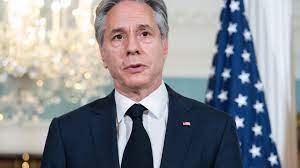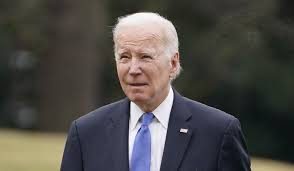US Secretary of State Blinken Issues a ‘Predatory’ Warning to This South Pacific Nation Aid from China
As the first US secretary of state to visit Tonga on Wednesday, Antony Blinken celebrated the opening of a new US embassy and warned other South Pacific countries about the dangers of “predatory” Chinese investment.
Blinken arrived in the capital of Nuku’alofa on a diplomatic charm offensive as part of an effort to increase Washington’s influence across the region and counter Beijing’s expanding power.
We are a Pacific country, and “the Indo-Pacific region is where we very much see the future,” Blinken said his guests.
He went on to say that “we really understand what is a priority for the people here,” noting things like climate change, development, and illegal fishing.
Blinken also issued a scathing caution against assistance and investment coming from Beijing, claiming that they often have conditions attached.
According to us, there has been some more worrisome behavior as China’s involvement in the area has increased, Blinken added.
He said that China was responsible for “some predatory economic activities, as well as investments that are made in a way that actually can undermine good governance and promote corruption.”
David Panuelo, the leader of Micronesia at the time, accused China in front of the world earlier this year of intimidating and snooping on him, as well as buying off members of his cabinet.
China’s economic pressure is seen to be especially dangerous for Tonga’s debt-ridden government.
Nearly a third of the island kingdom’s GDP is owed to China’s export bank, which provided a loan to help reconstruct the capital after riots tore through it in 2006.
The loan’s repayments will increase significantly the following year.
DIALOGUE HUB
Tonga, a Polynesian archipelago with a population of around 100,000, is the most recent in a line of Pacific island nations that are the focus of a new US diplomatic offensive.
Despite the fact that the new US embassy in Nuku’alofa was just formally inaugurated in May, Blinken’s hosts claimed that his visit indicated Washington’s rekindled interest in the area.
Tongan Prime Minister Hu’akavemeiliku Siaosi Sovaleni welcomed a “shared respect for democracy, rule of law, and the rights and freedoms of others” and added that “his presence here today is a testament to the fact that our partnership is growing from strength to strength.”
The US has plans to establish embassies in Vanuatu and Kiribati, and in February it reopened its Solomon Islands mission after a 30-year absence.
Prior to 2018, the United States had been somewhat absent from the scene, but they have now made a significant comeback, according to Lowy Institute analyst Meg Keen for the Pacific.
She told AFP that “where they have chosen to visit is where they think the geopolitical risks are high.”
Blinken’s visit was portrayed in state-run Chinese media as proof that the United States no longer trusted its partner Australia to handle ties with Pacific Island countries.
Since World War II, the United States has dominated the South Pacific’s military landscape.
But the area is becoming a more competitive battleground for nations seeking to influence politics, business, and the military.
Through its growing diplomatic influence, investments, investments, police training, and security agreements, China, the emerging military power in the area, has also made its presence felt.
Blinken offered his thoughts on Qin Gang’s unexpected resignation as China’s foreign minister when he was in Tonga.
Blinken remarked, “I wish him well,” and promised to cooperate with Wang Yi as his successor.
I’ve known Wang Yi for more than ten years as well. I’ve had several meetings with him,” Blinken stated. As we have in the past, “I anticipate working well with him.”
“It’s crucial that we handle this connection sensibly. That begins with engagement and diplomacy, and I will cooperate with whatever the appropriate Chinese counterpart is.







